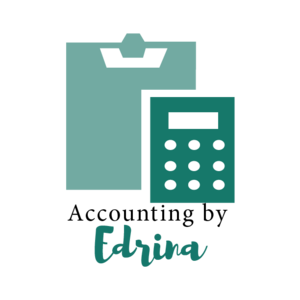Don't Set It and Forget It: 3 Steps to More Effective Budget
A comment I received in direct messages recently reminded me just how scary finances can be for a lot of people. This particular message said that it’s just too much of a commitment to develop and create a budget. In fact, this person went so far as to say, “Why can’t I just continue to live in financial ignorance?” I think a lot of people feel this same way! Many people would rather not know how much they’re spending every month because it’s easier than knowing.
Instead of thinking of a budget as a chore, think of it as an investment in yourself and your future. If I did not have a budget, I would not be able to grow my business to where I want it to be, because I would not know how much money I have, how much money I've been spending, and how much money I've been saving. If I did not track my spending, my savings, and my income, it would put me at a really bad spot by the end of 2019, and that is not where I want to be!
These are the steps to follow when creating a budget. Remember, a budget is not a set-it-and-forget-it thing. You have to keep checking in and making adjustments if necessary as you go along.
Step 1: Define Your Goal
If you have some really big goals in 2019 that you want to accomplish you're going to need a budget. So, let's talk goals. What’s a really big financial goal that you have for the year 2019? Is it to pay off debt? is it to get out of a car loan payment that you have? Define your goal before you begin your budget. That way you have a reason for spending time and energy looking at your financial numbers.
Make sure you create financial goals that are S.M.A.R.T! Your goal should be specific, measurable, achievable, relevant, and time-bound.
Specific: Make sure to be as specific as possible. Include the who, what, where, when, why, and how in this step. Write this down and post it somewhere you will see it every day.
Measurable: Create guideposts for yourself along the way to measure your progress. Make sure to celebrate reaching each guidepost as a win! If your long-term goal is saving $25,000 for a house. Celebrate each $5,000 saved, this will be more encouraging for you to continue reaching that long-term goal.
Achievable: Be as realistic as possible when creating your financial goals. You want to set yourself up for success, not failure.
Relevant: Keep these financial goals as relevant as possible. For example, if you want to buy a house in the future, make sure your goal today is to start trimming your expenses and putting more towards your savings account. You don't want to jump right into having a high and lofty goal of saving $25,000 right away, that will be especially hard to do and potentially less motivating in the present tense.
Time-bound: Try to think more in terms of over the next six months, this will help the psychology of your goals being reachable.
Step 2: Create Categories & Assign Numbers
In very simple terms, creating a budget means that you choose the spending categories that you use every month. For example, electricity, internet, groceries, etc. Then you assign numbers to those categories based on how much you expect to spend in each category. You can look back on previous months to get an idea of your total monthly spend for each category. This is your budget! This is your road-map to reaching your goal and the only way to make it work is to spend within the limits that you set for each category.
You can create this budget in an excel spreadsheet or click here to check out my resources page that includes recommendations for what to use when creating a budget.
Step 3: Maintain, Maintain, Maintain!
When it comes down to creating a budget, I notice that many people forget about budget maintenance. This is the most important part because a budget is not a set-it-and-forget-it tool. It will not simmer or marinate for hours on end. YOU have to be the one to maintain and consistently check in on your habits. You are the one responsible to change your mindset, in order to stick to a budget.
Since creating my goals for 2019, each little decision I make leading up to these goals is going to affect it, and I want to keep as much money in my possession so that it is readily available and can be spent directly on making these dreams and goals a reality.
One very tangible way I have reduced my spending is to minimize my Starbucks spending. When you have really big life and financial goals, every trip to Starbucks for $5 is going to go against those goals. I usually give myself a budget of $25 for Starbucks each month, but I have zeroed out that budget line for a couple of reasons: 1) My goals for this year mean that any extra expenses that are not related to my needs are getting axed, and 2) I have stretched out the money that I have accumulated on my Starbucks card and Starbucks gift cards.
I want to encourage and challenge you to do the same! Start small like I did by cutting out one small thing from your budget. See if you can make it the whole month! If you have some really big goals that you want to reach in 2019, and it is contingent on your personal finances, make sure you do everything you can to change your habits daily.

